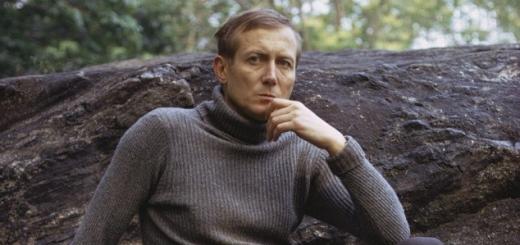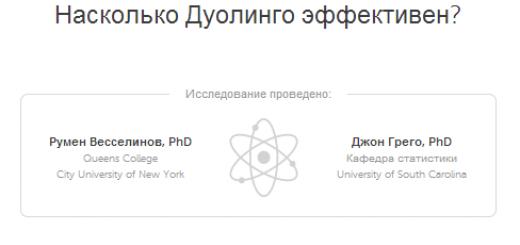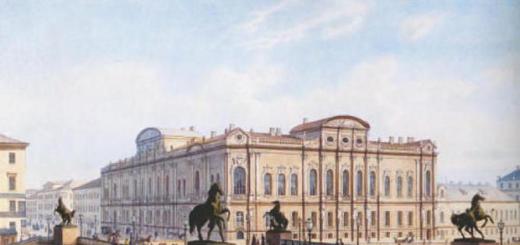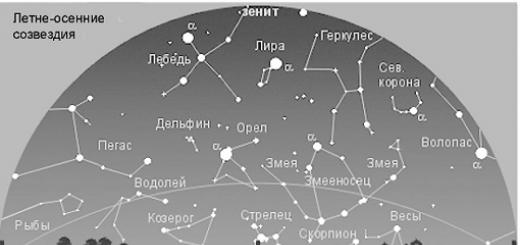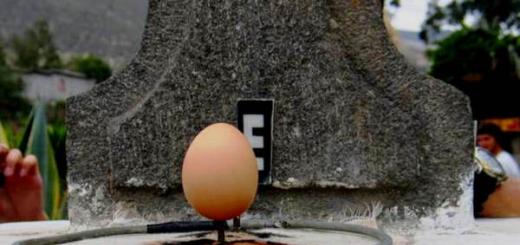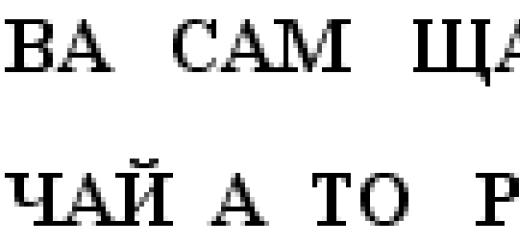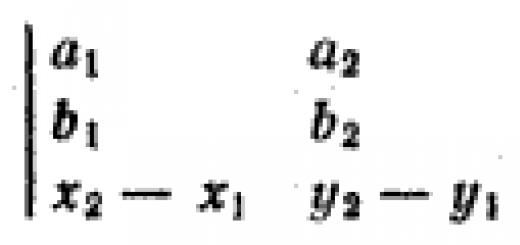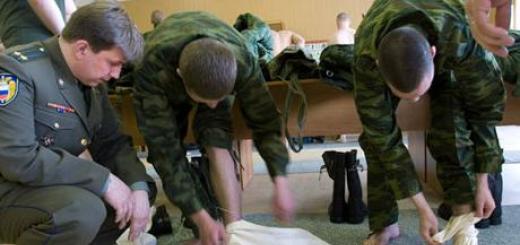Name: Grand Duke Dmitry Ivanovich (Dmitry Donskoy)
State: Muscovy
Field of activity: Politics
Greatest Achievement: Unification of Russia, victory in the Battle of Kulikovo over the army of Mamai
Dmitry Ivanovich was the Grand Duke of Moscow (1359-1389) and the Grand Duke of Vladimir (1362-1389). His father, Ivan II the Meek of Moscow (1326-1359), ruled from 1353 to 1359. Ivan II was a frivolous, good-natured person, six years of his reign did not increase the influence of Moscow. After his death, he left several minor children: the oldest was nine-year-old Dmitry. Under the able regency of Metropolitan Alexy (1353-1378), Dmitry inherited part of the Principality of Moscow, but was unable to retain the label for the Grand Duchy of Vladimir (which was ruled by the Muscovite princes from 1328 to 1359).
At that time, the Golden Horde was greatly weakened by internal strife and dynastic rivalry. In 1360, Khan Navruz from Sarai gave the Vladimir label to Prince Dmitry Konstantinovich from Suzdal and Nizhny Novgorod. A year later, Navruz was overthrown in a coup d'état, which was controlled by rival Tatar-Mongolian warlords. Khan Murut of the Chingizid family in Saray in the east declared Dmitry Donskoy Grand Duke of Vladimir in 1362. In 1363, Dmitry accepted the second label from Khan Abdullah, who was supported by Mamai Murza, who did not belong to the Genghisides. Mamai took control of the western Horde, establishing himself in Sarai and demanding power over all Russian lands.
Dmitry Donskoy returns the label and retains power
The offended Khan Murut took the label from Dmitry Ivanovich and handed it to Dmitry Konstantinovich. But Metropolitan Alexy was faithful to the children of Ivan II and turned to the khan on behalf of his young ward. Murut received him favorably, and in 1363 the Muscovites quickly moved to Vladimir, deposing Dmitry Konstantinovich before plundering the Suzdal lands. During this campaign, Dmitry took Starodub and Galich, adding these principalities to his possessions, and possibly Belozero and Uglich. By 1364, he forced Dmitry Konstantinovich to capitulate and sign an agreement recognizing Moscow's sovereignty over Vladimir. The agreement was sealed with signatures in 1366, and in the same year he married the daughter of Dmitry Konstantinovich Evdokia. The couple had at least 12 children.
To maintain his influence, Dmitry Ivanovich sends Prince Konstantin Vasilyevich from Rostov to Ustyug to the north and replaces him with his nephew Andrei Fedorovich, who supports Moscow. As a precedent, Dmitry gave his cousin, Prince Vladimir Andreevich Serpukhovsky, independent sovereignty over Galich and Dmitrov, thereby establishing the de facto right of the Muscovite princes to preserve hereditary lands and dispose of the conquered territory.
The first years of the reign of Dmitry Donskoy
An important event in the first years of Dmitry's reign was the construction of the first stone Moscow Kremlin, completed in 1367. The new fortress allowed the city to withstand two sieges of Olgerd in 1368 and 1370. The third siege attempt in 1372 ended with the Treaty of Lubut signed in the summer of 1372 between Olgerd (Algirdas), the Grand Duke of Lithuania and Dmitry, which led to a seven-year peace.
The only principality that Dmitry did not subjugate was Tver. The conflict was caused by the fact that in 1366 Mikhail Konstantinovich took the throne of the Principality of Tver with the help of his son-in-law Olgerd. Hostilities lasted eight years (1368-1375): Mikhail unsuccessfully tried to capture Moscow in 1368, and Dmitry captured the city of Mikulin in 1370. Four times Dmitry defeated Mikhail. Four times Mikhail, who was helped by Olgerd, won. Finally Olgerd died, and in 1375 Michael relented, recognizing himself as Dmitry's vassal. Other princes of Northern Russia also accepted Dmitri's seniority.
Relations of Dmitry Donskoy with the Golden Horde
When Dmitry was summoned to the Khan in Saray in 1371, he became convinced that the Tatar-Mongols were no longer able to defend their power. He did not hesitate to fight Ryazan, although it was supported by the Tatar-Mongolian army, and when he was given the orders of the Khan, Dmitry ignored them. In 1376 he sent a large army to Kazan on the Volga and forced two Tatar chieftains to pay tribute. The growing internecine conflicts in Lithuania, caused by the death of Olgerd in 1377, also played into the hands of Moscow. Moscow began to reduce tribute and, finally, stopped paying it altogether. The Tatar-Mongols could not come to terms with the fact that the Moscow prince actually declared independence from the Horde. Mamai attempted to punish Dmitry by sending an army in 1378, but was defeated by Dmitry's forces at the Battle of the Vozha River near Ryazan, which caused Dmitry to exclaim: "Their time has come, and God is with us!" A year later, the Khan sent an army to ravage Ryazan and began preparations to restore power over Moscow. Urgently in need of funds to stop Tokhtamysh, who made himself Khan of Saray, and wanting to avenge the defeat at Vozha, at the end of the summer of 1380.
As soon as Dmitry learned about his enemy's plans, he went to the Holy Trinity Monastery near Moscow to seek advice from the abbot of the Russian land, St. Sergius of Radonezh (circa 1314-1392), a shrewd politician known for his fervent prayers for the Russian land. He gave his blessing to the struggle of Prince Dmitry with the enemy not for life, but for death:
“You should, sir, take care of the glorious Christian flock entrusted to you by God. Go against the godless, and if God helps you, you will win and return unharmed to your fatherland with great honor.
St. Sergius spoke of the upcoming victory as if it were obvious to everyone. He allowed two monks Alexander-Peresvet and Andrei-Oslyaba, known for their courage, to join the army of Dmitry Ivanovich in order to set an example. Drawing crosses on their schemas, he said:
"Here is a weapon that never disappears!"
Battle of Kulikovo
Faced with great danger, many Russian princes gathered in Moscow - they all came to the rescue. There were only the princes of Tver and Ryazan, who did not recognize the authorities of Moscow. At the head of a large army, Dmitry Ivanovich went through Ryazan to the upper Don, where the Tatar-Mongols stood, waiting for reinforcements from his ally Jagiello, the new Grand Duke of Lithuania. Dimitri decided to start the fight before the enemies could connect. He crossed the Don and approached the Tatar-Mongols at the Kulikovo Field between the Don River and a small tributary called the Nepryadva.
“There are enemies behind the Don,” Dmitry told his associates. “Will we wait for them here or will we cross the Don and go to meet them?” It was unanimously decided to cross the river.
An order was immediately given, and the troops crossed the river, not far from the place where Mamai stood. As soon as everyone stepped ashore, Dmitry ordered the boats to go adrift. Now it's either victory or death: either let the enemy win and drown, or die in battle by the sword. The latter seemed preferable to the Russian soldiers, and Dmitry Ivanovich knew perfectly well that the men would fight with redoubled valor with such a choice.
On September 8, 1380, the united armies of Mamai approached the troops of Dmitry Donskoy so that a narrow strip of land remained between them. Unexpectedly, the strongest hero of the Horde, Chelubey, jumped out of the Tatar army. He waved his spear threateningly and challenged the Russian soldiers to fight one on one. Peresvet left without a helmet and armor, remaining only in his schema with a cross to show that he was a warrior of Christ. The monk rushed at the enemy with lightning. The opponents gathered and struck each other with their heavy spears with such force that they immediately fell down dead. This was the beginning of the battle.
The Tatar-Mongols were unable to launch a swift attack, which often brought them victory. The Russians defended themselves with such fury and the battle was so fierce that many soldiers were trampled to death by horses. However, in the end, the death toll became too high. The Russians were tired, and the magnanimous governor of the Tatar-Mongols allowed them to replace the soldiers exhausted in battle with fresh ones.
Russian ranks trembled. Maybe they would have retreated, but nowhere - behind the river, and not a single boat. At this critical moment, when Dimitri's troops were teetering between panic and courage, ready to throw their swords, deadly weary, the unexpected jumping out of the cavalry inspired joy in their troubled souls. One detachment, which did not take part in the battle, was left in reserve by the Grand Duke - it was commanded by Prince Vladimir Andreevich Serpukhovskoy. And now, full of strength and fury, they attacked the rear of the Tatar-Mongols with all their might, who, with horror, thought that this new army had come to the aid of the enemy. Soon they were broken and retreated from the battlefield, pursued by the Russian army. Mamaia's camp, his chariots and camels were captured.
The Russian armies paid dearly for the victory. The earth was strewn with thousands of bodies. Dmitry was found unconscious from blood loss. The survivors buried the dead for eight days. According to legend, “the Grand Duke stood on human bones for three days and three nights, trying to extract all the dead bodies, and then he buried them with honors. To bury them, he ordered deep pits to be dug in the hills nearby, and it took them 300,000.”
The victory at the Kulikovo field was of paramount importance for the unification of individual Russian principalities into a single centralized state around Moscow. In fact, it became the source of Russian statehood, and therefore for every Russian, Kulikovo Field is a sacred place. In honor of this great victory, Dmitry Ivanovich was nicknamed "Donskoy".
The successes achieved in the battle, at first glance, contributed to the fall of the Tatar-Mongolian power over Moscow, but it soon turned out that this was not the case. Tokhtamysh seized the opportunity to overthrow Mamai in 1381, becoming the last Khan of the White Horde. He united the White Horde and the Blue Horde into a single state - the Golden Horde and confirmed his title of ruler of the Russian lands. In 1382, she laid siege to Moscow, and Dmitry went to Kostroma to gather an army. Meanwhile, Moscow was captured by deceit and put to fire and sword. It is said that 24,000 inhabitants were killed. Vladimir and other cities suffered the same fate. It is said that Dmitry wept when he saw the charred remains of his capital. However, there was nothing left but to make peace with Tokhtamysh. Dmitry swore allegiance to the khan and became Grand Duke of Vladimir again, agreeing to pay a much higher tribute to Tokhtamysh for the label on Vladimir than he had originally paid to Mamai.
 But his soul was restless: the princes of Tver and Ryazan incited Novgorod and Mamai to use the plight of Moscow to plunder other cities of the Moscow principality. After the country had recovered sufficiently, he forced the Prince of Ryazan to conclude an "eternal peace", and Novgorod in 1386 was forced to pay an indemnity in addition to agreeing to an annual tribute.
But his soul was restless: the princes of Tver and Ryazan incited Novgorod and Mamai to use the plight of Moscow to plunder other cities of the Moscow principality. After the country had recovered sufficiently, he forced the Prince of Ryazan to conclude an "eternal peace", and Novgorod in 1386 was forced to pay an indemnity in addition to agreeing to an annual tribute.
Meanwhile, Dmitry Donskoy skillfully used the church to serve his political and commercial interests. He sent a mission in 1379, led by the monk Stefan, to baptize Ustyug and create a new bishopric in Perm, which secured Moscow's control over the main areas of the highly lucrative fur trade. After the death of Metropolitan Alexy in 1378, Dmitry did not allow Cyprian, who was the Metropolitan of Lithuania and demanded power over the Moscow church, to be placed on the Moscow Metropolis. Instead, Dmitry supported Mikhail, who died under mysterious circumstances, before he could become patriarch. Dmitry's second choice, Pimen, was planted in the Moscow metropolis in 1380 and with a short break (Cyprian was met by Dmitry after the Battle of Kulikovo until the siege of Tokhtamysh in 1382) until his death served as metropolitan of Moscow.
 In May 1389 Dmitry Donskoy died, leaving Moscow the most powerful of all Russian principalities. He stated in his will that his son Vasily should be the sole heir to all property, including the Grand Duchy of Vladimir. Thus, Dmitry was the first Grand Duke to leave his titles to his son without consulting the Khan. As some historians note, the latter, having accepted the conditions, recognized the Grand Duchy as an integral part of the inheritance of the Moscow prince.
In May 1389 Dmitry Donskoy died, leaving Moscow the most powerful of all Russian principalities. He stated in his will that his son Vasily should be the sole heir to all property, including the Grand Duchy of Vladimir. Thus, Dmitry was the first Grand Duke to leave his titles to his son without consulting the Khan. As some historians note, the latter, having accepted the conditions, recognized the Grand Duchy as an integral part of the inheritance of the Moscow prince.
Unlike other Moscow princes, Dmitry Donskoy did not become a monk on his deathbed. Despite this, the chroniclers praised him as a saint. The Book of Degrees of 1563, written in the scriptorium of the Moscow metropolitan, depicts Dmitry and his wife Evdokia as chaste ascetics with miraculous powers of intercession for their descendants and their land, thereby laying the groundwork for their canonization. Unofficially revered since the late 15th century, Dmitry was canonized by the Orthodox Church almost 600 years after his death, in 1988.
6th Prince of Moscow |
|
Predecessor: |
Ivan II Ivanovich Red |
Successor: |
Vasily I Dmitrievich |
Grand Duke Vladimir |
|
Predecessor: |
Dmitry Konstantinovich |
Successor: |
Vasily I Dmitrievich |
Birth: |
|
Dynasty: |
Rurikovichi |
Ivan II Ivanovich Red |
|
Alexandra Ivanovna |
|
Evdokia Dmitrievna, daughter of Dmitry Konstantinovich |
|
Yuri, Andrey, Peter, Vasily, Anastasia, Evdokia |
|
Fight against the Golden Horde
Invasion of Tokhtamysh
Board results
Dmitry Ivanovich(October 12, 1350, Moscow - May 19, 1389), nicknamed Dmitry Donskoy for the victory in the Battle of Kulikovo - Grand Duke of Moscow (since 1359) and Vladimir (since 1363). Son of Prince Ivan II the Red and his second wife, Princess Alexandra Ivanovna. During the reign of Dmitry, significant military victories were won over the Golden Horde, the centralization of Russian lands around Moscow continued, and the white-stone Moscow Kremlin was built.
Dmitry's childhood The struggle for the great reign of Vladimir
After the death of his father (1359), the guardian of the nine-year-old prince and the actual supreme ruler of the Moscow principality became Metropolitan Alexy, a man of remarkable political intelligence and tact, who had a strong character and great authority. Dmitry consulted with him, continuing the policy of his father and grandfather to collect Russian lands around Moscow. To do this, he had to wage a long struggle with the rival princes (Suzdal-Nizhny Novgorod, and Tver) for the right to a label for a great reign.
By the middle of the XIV century, North-Eastern Russia consisted of separate strong principalities: Moscow, Tver, Suzdal. The oldest prince was considered the one who bore the title of Grand Duke of Vladimir, a label for a great reign in which was issued in the Horde.
In the Horde at this time, khans are changing with great speed: more than 20 khans have changed in two decades. In 1360, Khan Navrus, who seized the throne of the Horde, having killed his predecessor, gave the great reign of Vladimir to the Suzdal prince Dmitry Konstantinovich, who belonged to the branch of the Suzdal-Nizhny Novgorod princes, a descendant of Alexander Nevsky's younger brother Andrei. On June 22, 1360, Dmitry Konstantinovich arrived in Vladimir, but Moscow did not think to yield. The Moscow boyars were interested in securing the great reign for the Moscow dynasty and did everything possible to restore the dignity of the Grand Duke of Vladimir to their prince. Eleven-year-old Dmitry went to the Horde.
Soon Navrus was killed, and the Horde was divided between two khans: Abdul and Murid. At first, it seemed to Muscovites that Murid’s party was stronger, and they obtained a label from him for Dmitry, but in the next 1362 they saw that Mamai’s party was gaining the upper hand, and received a label for Dmitry for a great reign on behalf of Abdul. At the beginning of January 1363 Dmitry "sat down" in Vladimir. However, Dmitry Suzdalsky received a label from Murid and again occupied Vladimir, but he could only “sit” there for 12 days, because Dmitry Ivanovich again went to him with an army and drove him out of Vladimir.
The position of Dmitry Suzdal was complicated by a quarrel among the Suzdal-Nizhny Novgorod princes themselves. One of them, the younger brother of Dmitry Konstantinovich, Boris, unexpectedly captured Nizhny Novgorod, which by right did not belong to him. Dmitry Konstantinovich, who was in dire need of military assistance and political support, was forced to turn to Moscow. Moscow returned to him Nizhny Novgorod, captured by Boris, but as a payment for the service, the former Grand Duke signed an agreement in 1365, according to which he renounced his claims. Murid's successor, Azis, thought of overthrowing Dmitry Ivanovich, and Dmitry Konstantinovich again received the Khan's charter. But, seeing his weakness, he preferred the friendship of Dmitry of Moscow to the mercy of Azis and refused the grand ducal title. Finally, on January 17, 1366, in Kolomna, the union of princes was sealed by the marriage of Dmitry Ivanovich to the Suzdal princess Evdokia Dmitrievna. From her marriage, Dmitry had five sons, including the future Grand Duke Vasily I.
In 1363, Dmitry "took his will" over Prince Konstantin of Rostov, and expelled the princes Ivan Fedorovich Starodubsky and Dmitry Galitsky from their principalities.
Beginning of independent government. Conflict with Tver and Lithuania
In the second half of the 60s, Prince Dmitry Ivanovich carried out a number of measures aimed at centralizing state administration and military affairs. In 1365, the Great Fire of All Saints broke out in Moscow, so called because it started in the Church of All Saints. For 2 hours, the fire destroyed the Kremlin, Posad, Zagorodye and Zarechye. The all-holy fire led to a wave of stone construction in the capital of the principality. In 1367, Dmitry Ivanovich began the construction of a new Kremlin - white stone. Now Moscow was reliably protected from hostile raids.
In 1368, Vasily Mikhailovich Kashinsky was at enmity with his nephew, Mikhail Alexandrovich, because of the area of the deceased Semyon Konstantinovich. To resolve this dispute, they turned to the Grand Duke for help. Dmitry supported Vasily Mikhailovich. Mikhail left for Lithuania to live with his son-in-law, Prince Olgerd of Lithuania. Taking advantage of his absence, Vasily and the Moscow army devastated Mikhail's region. But Mikhail, with the help of Olgerd, took Tver and expelled his uncle. Dmitry's advisers, fearing the plans of Mikhail, who called himself the Grand Duke of Tver and wanted to restore the independence of his region, cunningly invited him to Moscow to resolve the dispute between the princes of Tver. There he was taken into custody. Only the arrival of the Khan's nobleman Karachi forced Dmitry Ivanovich to release Mikhail of Tverskoy. Outraged, Mikhail called for help Olgerd, who moved to Moscow with a large army.
On November 21, 1368, in a bloody battle on the Trostna River near Moscow, the Lithuanians defeated the guard regiment of Muscovites. Moscow withstood the Lithuanian siege thanks to the stone walls of the Kremlin and the Teutonic invasion of the western possessions of Olgerd. Having ruined the entire Moscow district in three days, Olgerd's army retreated back to Lithuania. As reported in the annals, "... there was no such evil as from the Lithuanians, and from the Tatars." Moscow troops conducted retaliatory campaigns in the Smolensk and Bryansk lands dependent on Olgerd. A new Moscow campaign against Tver took place in August 1370. At the beginning of 1371, Mikhail went to the Horde, where he begged the Grand Duke's label from Khan Mohammed Sultan. The prince returned to Russia with the Horde ambassador Sarykhozha, who summoned Dmitry to him. Gathering an army at Pereyaslavl, Dmitry replied: “I’m not going to the label, I won’t let Mikhail reign in the land of Vladimir, but you, ambassador, the path is clear!” Moscow politicians easily called Sarykhozh to Moscow and generously endowed him, and in June 1371 Dmitry went to the Horde and ransomed the son of Mikhail of Tver, Ivan, who was held hostage there, for 10,000 rubles.
In July 1372, in the battle of Lubutsk (a Lithuanian fortress on the Oka River near Tula), the Moscow army defeated the guard regiment of Olgerd, the troops approached the ravine from two sides. Dmitry concluded a truce with both Olgerd and Mikhail Tverskoy. Olgerd's daughter, Elena, became the wife of Vladimir Andreevich Serpukhovsky.
In 1374-1375. Dmitry made peace with Mamai, which Tver did not fail to take advantage of. There were also those who were dissatisfied in Moscow itself: the son of the recently deceased thousandth Moscow Vasily Velyaminov, Ivan, dissatisfied with the destruction of the dignity he counted on, drove away from Demetrius with adherents to Tver and began to fuss in the Horde about the great reign for Michael. In 1375, a label for a great reign was delivered to Tver, and Mikhail sent detachments to Torzhok and Uglich. An unprecedented number of allies gathered around Dmitry: the princes of Suzdal-Nizhny Novgorod, Serpukhov, Gorodetsky, Rostov, Yaroslavl, Belozersky, Kashinsky, Starodubsky, Tarussky, Novosilsky, Obolensky, Smolensky, Bryansk and Novgorodians, constant enemies of Tver. A month-long siege finally undermined Michael's strength and he asked for peace. The contract was signed on September 3rd. Mikhail forever renounced his claims to Moscow, the great reign of Vladimir and Novgorod, pledged to help Dmitry against the Tatars and open a free passage of Novgorod goods through his land.
Fight against the Golden Horde
In 1371, in disputes over the borders of the Moscow and Ryazan principalities, Dmitry emerged victorious, defeating the Ryazan prince Oleg Ivanovich near Skornishchev. In 1376, the Moscow principality asserted its influence in the Volga-Kama Bulgaria, began negotiations with Veliky Novgorod on the settlement of trade activities. As a result of these negotiations, Moscow opened the free passage of Novgorod goods in its land, having secured the consent of the Novgorodians in the event of a new conflict with Tver to stand on the side of Moscow. Dmitry actively interfered in church politics, in particular, he refused to receive Metropolitan Cyprian (his people robbed the metropolitan and did not let him into Moscow), for which the prince and his people in 1378 were excommunicated by a special message from Cyprian and cursed according to the rules of the holy fathers.
After the death of St. Alexis, the Monk Sergius of Radonezh suggested that Grand Duke Dimitri elect Bishop Dionisy of Suzdal to the metropolitan see. But Grand Duke Dmitry wished to have his confessor of Novospassky Archimandrite Mikhail (Mitya) as metropolitan. By command of Prince Michael was elected in Moscow by the cathedral of bishops to become Metropolitan of Moscow. St. Dionysius boldly spoke out against the Grand Duke, pointing out to him that the appointment of the primate without the will of the Ecumenical Patriarch would be illegal. Mityai was forced to go to Constantinople. Dionysius wanted to get ahead of Mityai and go to Constantinople himself, but was detained and taken into custody by the Grand Duke. Desiring to be freed, Dionysius made a promise not to go to Constantinople and presented St. Sergius as a guarantee. But as soon as he received his freedom, at the call of the patriarch, he hurried to Greece after Mitya. By his act, he caused a lot of trouble to Sergius.
Mamai was greatly concerned about the growing power of the Moscow prince. In 1377, the Horde attacked Nizhny Novgorod. In the battle of the Pyana River, the Russian army suffered a heavy defeat from the Horde prince Arapsha. Dmitry Konstantinovich, left without troops, fled to Suzdal, Nizhny Novgorod - to neighboring Gorodets, and Nizhny Novgorod was burned.
The following year, Mamai sent the army of Murza Begich to plunder and burn the "excessively strengthened" Moscow. But Dmitry Ivanovich met the Horde on Ryazan land near the Vozha River, where on August 11, 1378, Russian troops inflicted a crushing defeat on the Horde. Begich was killed.
For more than a year, Mamai has been preparing for a new "great campaign against Russia." He joined detachments of mercenaries to the Horde army: Genoese, Circassians and Alans. The Lithuanian prince Jagiello also acted as an ally of Mamai.
In the summer of 1380, Mamai moved to Russia. The squads of many Russian lands converged in Kolomna, where Dmitry Ivanovich's headquarters was located. On both sides, there were probably 100-120 thousand soldiers. On September 8, 1380, on the Kulikovo field, in the place where the Nepryadva river flows into the Don, the Russian and Horde troops converged for a decisive battle. According to legend, St. Sergius of Radonezh, the founder and abbot of the Trinity-Sergius Monastery, blessed the Russian soldiers for this battle. Later legends say that he sent two of his knights to Dmitry Ivanovich - monks, Oslyabya and Peresvet. The battle began with a duel between Peresvet and the Tatar hero Chelubey. The heroes at full gallop hit each other with spears and both fell dead from their horses. Immediately after this duel, a fierce battle began, ending with the flight of Mamai from the battlefield and the complete defeat of the Tatar-Mongolian army.
Dmitry Ivanovich was found on the battlefield seriously wounded. Jagiello, who was going to join Mamai, found out about the defeat of the Horde and turned back (according to other sources, he camped 20 miles from the Kulikovo field and did not enter the battle). Oleg Ivanovich Ryazansky fled to Lithuania, but soon returned and concluded a peace treaty with Dmitry. For the victory on the Kulikovo field, Dmitry Ivanovich was nicknamed Donskoy.
The remnants of Mamai's army were defeated by Genghisid Tokhtamysh, who came to power with the help of Timur, and seized the throne of the Golden Horde. Mamai fled to the Crimea, where he was killed by his allies from Genoa.
Invasion of Tokhtamysh
In 1381, Dmitry's ally, Keistut Gediminovich, seized power in Lithuania. But in the summer of the following year, in the fight against the nephews of Jogail and Dmitry-Koribut, who received the military support of the Teutons and the diplomatic support of the Horde, he was defeated, captured and died (or was killed) on August 15, 1382.
Back in 1381, Tokhtamysh sent an ambassador to Moscow to call Dmitry to the Horde, the ambassador left with a small detachment, and Dmitry refused to pay tribute and go to the Horde. Then Tokhtamysh, having gathered an army, moved to Russia in 1382. Oleg Ivanovich, hoping to save his principality from defeat, pointed out to Tokhtamysh the fords on the Oka (but his principality was ravaged by the Horde on the way back). With Tokhtamysh came the sons of Dmitry Konstantinovich Suzdal Vasily and Semyon. Dmitry Donskoy went to Kostroma, Vladimir the Brave - to Volok Lamsky. Metropolitan Cyprian with Grand Duchess Evdokia left for Tver. A rebellion began in Moscow, but the Lithuanian prince Ostei managed to organize a defense. Moscow was completely burned on August 26, the inhabitants were killed or taken prisoner, other cities were also defeated, but near Volok, the Horde were defeated by an army that Vladimir Andreevich managed to gather.
Taking advantage of the weakening of Moscow, Prince Mikhail of Tver, "forgetting" the oath, went to the Horde for a label for a great reign. But Dmitry Donskoy got ahead of him with a "repentant embassy" to the khan, and the label for the great reign remained with Moscow. By 1384, there are 2 agreements with Lithuania, according to one of which the princes Jagiello, Skirgailo and Koribut kissed the cross to Dmitry, Vladimir Andreevich Serpukhovsky and their children, and the other, which the former Tver princess Juliana Alexandrovna concluded with Dmitry, provided for the marriage of her son Jagiello with her daughter Dmitry Donskoy, subject to the submission of the Lithuanian prince to the supreme power of the prince of Moscow and the recognition of Orthodoxy as the state religion of the Grand Duchy of Lithuania. However, in the same year, under an agreement in Dubyssy, Jagiello ceded to the Zhmud Order and undertook to accept the Catholic faith within four years, and in the Horde, Dmitry gave his eldest son Vasily hostage and agreed to pay tribute in an increased amount. In 1385, the Union of Kreva was concluded, according to which Jagiello converted to Catholicism and married the heir to the Polish throne. A year later, Jagiello, with the help of Polish troops, defeated Andrei Olgerdovich Polotsky and Svyatoslav Ivanovich Smolensky, and Dmitry had a conflict with Novgorod.
Last years. Question of succession
The Ryazan prince took advantage of the weakening of Moscow and in 1385 captured Kolomna. Only the intercession of Sergius of Radonezh, who reconciled Dmitry and Oleg, saved Russia from another internecine war. The union of princes was sealed by family ties - the daughter of Dmitry Donskoy - Sophia was married to the son of Oleg Ryazansky - Fedor.
(1388) Demetrius also encountered the displeasure of his cousin Vladimir Andreevich Serpukhovsky, who had to be brought "to his will" by force, forced to recognize the political seniority of Demetrius' eldest son, Vasily. Demetrius managed to make peace with Vladimir on this two months before his death: he died on May 19, 1389.
A family
The only wife of Dmitry was Evdokia, the daughter of the Grand Duke of Suzdal-Nizhny Novgorod Dmitry Konstantinovich. Dmitry and Evdokia had twelve children:
- Daniel (1370 - September 15, 1379).
- Basil I (December 30, 1371 - February 27, 1425).
- Sophia (d. 1427), in 1387 married Fyodor, son of Oleg of Ryazan
- Yuri Zvenigorodsky (November 26, 1374 - June 5, 1434).
- Maria (d. May 15, 1399) - married the Grand Duke of Lithuania, Lugvenius, son of Olgerd.
- Anastasia - married Ivan Vsevolodovich, Prince of Kholmsky
- Simeon (d. September 11, 1379).
- Ivan (d. 1393).
- Andrei Mozhaisky (August 14, 1382 - July 9, 1432).
- Peter Dmitrovsky (July 29, 1385 - August 10, 1428).
- Anna (born January 8, 1387) - married the Starodub boyar Yuri Patrikeevich.
- Constantine (May 14, 1389 - 1433).
Board results
During the first 16 years of his reign, Dmitry managed to become the recognized head of the anti-Horde policy in the Russian lands, the collector of Russian lands (“bring all the Russian princes under your will”). The idea of the independence and political unity of Russia began to coincide with the idea of \u200b\u200ba strong grand ducal Moscow power. The Grand Duchy of Vladimir finally came under the rule of Moscow, thereby making the process of Moscow's rise irreversible. The territory of the Moscow principality expanded under Dmitry at the expense of the territories of Pereyaslavl, Galich, Beloozero, Uglich, Dmitrov, part of Meshchera, as well as Kostroma, Chukhloma, Starodub and northern Komi-Zyryan (where the Perm bishopric was founded) lands. Maintaining friendly relations with Orthodox Byzantium, Dmitry sought recognition of the independence of the Russian Orthodox Church from Constantinople.
On the other hand, the western lands were lost, including Tver (1383) and Smolensk (1386), and the main territory was devastated both by the invasion of Tokhtamysh and the subsequent payment of a significant tribute, and by wars by the Grand Duchy of Lithuania and other principalities. According to Kostomarov N.I.
In Moscow itself, in addition to the white-stone Kremlin, monasteries-fortresses (Simonov, Andronikov) were erected, covering the approaches to the city center. Under Dmitry, the minting of a silver coin was introduced in Moscow - earlier than in other Russian principalities and lands. The cultural life of the principality of the Donskoy era is characterized by the creation of works related to the victory of Russian weapons (which later became the basis of the “Tale of the Mamaev Battle” and “Zadonshchina”, which glorified the successes of Russian weapons on the Kulikovo field).
Dmitry Donskoy had 12 children (8 sons, 4 daughters). In his "Dukhovnaya" (testament), he transferred the great reign to his eldest son Vasily - without additional sanction of the Golden Horde, already as "his fatherland." To all children, including sons (Vasily, Yuri, Andrey, Peter, Ivan and Konstantin), he bequeathed to listen to his mother, Evdokia Dmitrievna, in everything after his death. No less new was Demetrius' order that the petty princes of Moscow land should live in Moscow at the court of the Grand Duke, and not in their own estates.
The Grand Duke of Vladimir and Moscow Dmitry Ivanovich Donskoy died on May 19, 1389, was buried in Moscow in the Archangel Cathedral of the Kremlin.
Memory
Canonized as a saint at the Local Council of the Russian Orthodox Church in 1988. Memorial Day - May 19 (June 1, new style). The name of Dmitry Donskoy for several centuries has become a symbol of Russian military glory. In 2002, the Order "For Service to the Fatherland" was established in memory of the holy Grand Duke Dmitry Donskoy and the Monk Abbot Sergius of Radonezh.
Named after Dmitry Donskoy:
- Dmitry Donskoy Boulevard, Northern Butovo, Moscow, Russia
- Bulvar Dmitry Donskoy metro station, Severnoe Butovo, Serpukhovsko-Timiryazevskaya line, Moscow, Russia
- st. Dmitry Donskoy, Kaliningrad, Russia
- st. Dmitry Donskoy, Pavlovsky Posad, Pavlovo-Posadsky district, Moscow region, Russia
- st. Dmitry Donskoy, Embankment Dmitry Donskoy - Kolomna, Moscow region, Russia
- st. Dmitry Donskoy, Novosibirsk, Russia
- st. Dmitry Donskoy, Ufa, Russia
- Dmitry Donskoy embankment, Kolomna, Moscow region, Russia
- Dmitry Donskoy Square, Dzerzhinsky, Moscow region, Russia
- Nuclear submarine "Dmitry Donskoy"
Board of Dmitry Donskoy 1. Konstantinovich. 2. Dmitry's desire for autocracy. 3. Stone Kremlin. 4. Approval of order within the country. 5. Lithuanian invasions. 6. Raids of the Tatars and the first victory over them. 7. Invasion of Mamai. Kulikovo battle. 8. Approval of a new order of succession. The last son of Kalita, Ivan Krasny, died when his heir Dmitry was 9 years old. The Suzdal-Nizhny Novgorod prince Dmitry Konstantinovich, Dmitry's fourth cousin, hastened to take advantage of the infancy of the Moscow prince.
However, in addition to the Moscow princes, the Moscow boyars were interested in securing the great reign for the Moscow dynasty. The boyar government that existed under the juvenile prince, headed by Metropolitan Alexy, through diplomatic negotiations in the Horde and military pressure on the Suzdal-Nizhny Novgorod prince, forced him to renounce the great reign in favor of Prince Dmitry Ivanovich.
Dmitry Ivanovich, who was awarded the grand princely dignity by Khan Murut, wanting to rule more securely, sought favors in another khan, Avdul, who also had great influence in the Horde. The ambassador of this khan appeared with a gracious letter, and Dmitry had to go to Vladimir a second time to receive her in accordance with the ancient rites. By the policy of servility to both khans, the Grand Duke offended both. Therefore, he lost the favor of the Saray Khan and, returning to Moscow, found out that Dmitry Konstantinovich again occupied Vladimir, for Murut sent him a khan's label for a great reign.
But the young grandson of Kalita dared to despise him, went out with the regiments and a week later expelled Dmitry Konstantinovich from Vladimir. Meanwhile, in Sarai, one khan replaced another. Murut's successor, Azis, also thought of overthrowing Dmitry, and Dmitry Konstantinovich again received a khan's charter for a great reign. But, seeing his weakness, he preferred the friendship of Dmitry of Moscow to the grace of Azis, and refused the dignity of the grand duke.
The Grand Duke decided to eradicate the appanage system. He wanted to rule unanimously. Taking away the inheritances of distant princes, Dmitry did not want to do this with his neighbors, and the Moscow principality remained still fragmented. So Dmitry Ivanovich and his cousin, Vladimir Andreevich, concluded an agreement that Vladimir was allowed to rule over his father's inheritance, but he was obliged to obey the Grand Duke. A few years later, a fire broke out in Moscow, called the great fire of All Saints, because it started in the Church of All Saints.
In two hours, the fire destroyed the Kremlin, Posad, Zagorodye and Zarechye. Seeing how unreliable the wooden fortifications were, the Grand Duke decided to build
Stone Kremlin
Prince Oleg defeated the Orda Murza Tagai, who plundered Ryazan, and Dmit... He took only the Khan's ambassador with him. Having learned about that, Dmitry in all th ... Contrary to the word given by the khan, the ambassadors of Mamai, having arrived in Nizhny Novgorod with ... Olgerd died in 1377. The subjects had to answer for their prince.
References: 1. Karamzin N. M. "History of the Russian State. "Moscow, 1993, volume 5. 2. "History of the Fatherland.", Moscow, 1993. 3. "Chronology of Russian History.", Moscow, 1994 .
What will we do with the received material:
If this material turned out to be useful to you, you can save it to your page on social networks:
| tweet |
More essays, term papers, theses on this topic:
Kulikovo battle. Its historical significance. Dmitry Donskoy
The princes of Moscow cleverly took advantage of the strife in the camp of the enslavers, sought to own the title of Grand Duke of Vladimir, which meant .. But Dmitry was also bright and serious beyond his years. Chronicler .. Dmitry Konstantinovich not only refused the great reign, but also recognized the will of the Moscow prince over himself, but ..
Comparative analysis of the personalities of Ivan Kalita and Dmitry Donskoy
But the tragedy of world-historical personalities lies in the fact that “they do not belong to themselves, that they, like ordinary individuals, are only tools. the needs of society, and the personal qualities of people. "A distinctive feature..
Dmitry Donskoy
This great event breathed new strength and hope into the hearts of the Russian people, struck the imagination of contemporaries and descendants. Moscow showed itself .. Having lived only incomplete four decades, Dmitry Ivanovich did a lot for .. Then Simeon Ivanovich Gordy, the uncle of little Dmitry and the eldest son of Ivan Kalita, reigned in Moscow. It was difficult ..
Dmitry Donskoy and his time
It was a misfortune of enemies who wanted to enslave the great Russia. It is very interesting to read the annals of contemporaries and the scientific works of historians, and historical .. Many books have been written about Alexander Nevsky, Peter I and other great people .. In the end, the Moscow boyars and Metropolitan Alexy manage to secure the title of great for Dmitry in the Golden Horde ..
Cruiser of the 1st rank of the Tsushima campaign "Dmitry Donskoy". History and specifications
But the eras inherited by the ships were different and they ended their days in different ways. The first sailing-steam Dmitry Donskoy regularly served twelve. .
Forms of government
The form of government makes it possible to understand how the highest organs of the state are created, and what structure they are built in. According to the indicated signs, the forms of government are divided into .. The main features of the classical monarchical form of government are the existence of a sole head ..
Forms of government
The form of the state is studied in various social sciences from the perspective of its subject.
Forms of government in modern foreign countries. USA, France, Japan
The form of government is characterized by several basic properties: the method of formation of the supreme authorities; the structure of the authorities; principles .. The constitution fixes the structure of the state mechanism, distribution .. The nature of the form of government that exists in the state depends on the organization of the supreme state power, more precisely ..
How and why does Dmitry Startsev turn into Ionych? (according to the story of A.P. Chekhov "Ionych")
But Chatsky was initially sure of his superiority over this environment and constantly denounced it in his monologues. He left this environment slandered, but .. At first they do not know what kind of society he got into. The witticisms of Ivan Petrovich, the novel by Vera Iosifovna, the playing of Kotik on the piano, the tragic posture of Pava seem to be enough for him ..
Kazakhstan during the reign of Ablaykhan
At the end of 20-30s. Abilmansur takes part in battles with the invaders, at first as an ordinary soldier, then quickly advances and becomes.. In 1740, Khan Zholbarys and most of the clans of the Elder Zhuz were killed in Tashkent. Khan Abylay (1771-1781) - the last Kazakh Khan, whose authority was indisputable in all Kazakh lands. Only..
The Grand Duke was born in Moscow on October 12, 1350. When Ivan II the Red died in 1359, Metropolitan Alexy became the de facto ruler of the Moscow principality, assuming the position of guardian of the young prince.
The advice of the metropolitan - a man of great intelligence and strong character, who used his authority to achieve the supremacy of Moscow in North-Eastern Russia - helped Dmitry Donskoy to continue the policy of gathering Russian lands around Moscow. This policy was followed by his father and grandfather - also the most famous historical figure Ivan Kalita.
The eleven-year-old prince Dmitry Donskoy had to fight for a long time for rule with rival princes - Ryazan, Tver and Suzdal-Nizhny Novgorod.
commander
In 1363, as a result of a long struggle for the principality, Dmitry Donskoy received the right to be single-handedly considered the Grand Duke. Strengthening the position of Moscow helped the prince's marriage to the Suzdal princess Evdokia Dmitrievna. Accordingly, at the same time, the father of the princess abandoned his intentions to rule Vladimir in favor of Moscow.
The first white-stone Kremlin in Russia appeared thanks to the order of Dmitry in 1367. It was a powerful defensive fortress against rival princes. At the same time, the gates of the Kremlin were always friendly to the ambassadors of the khan, from whom Dmitry Donskoy preferred to pay off with expensive gifts.
It was the white-stone Kremlin that helped defend Moscow and prevent the reign of the Lithuanian prince Olgerd, who in 1367 defeated the Moscow troops on the Trosna River. In 1369, Prince Donskoy himself went with troops to the Smolensk and Bryansk principalities belonging to Olgerd, and defeated them. Supported the Grand Duke, again, Metropolitan Alexy.
When in 1377 the Horde prince Arab-Shah attacked the Suzdal principality, where the father-in-law of Dmitry Donskoy was the ruler, the Grand Duke was the first of the Russian princes to openly fight the Horde. But this time, the Moscow army failed: according to legend, the “drunk” Russian soldiers did not expect an attack and were defeated by the Horde army. Therefore, the river, on the banks of which the camp of the Moscow regiments was located, was called the "River Piani".
However, in 1378, a detachment of soldiers, commanded personally by Dmitry Donskoy, defeated a large detachment of the Horde on the Vozha River. This victory was the first victory of the Russian army over the Horde and glorified the voivode Daniil Pronsky and Timofey Velyaminov.
Grand Duke Dmitry received the nickname "Donskoy" by defeating the Horde army on September 8, 1380 in the Battle of Kulikovo, which unfolded between the rivers Nepryadva and Don.
The famous victory of the army of Dmitry Donskoy in the Battle of Kulikovo allowed Moscow not to pay tribute to the conquerors for two years (until the attack on the city in 1382 by Khan Tokhtamysh).
During the thirty years of his reign, Dmitry Donskoy became a recognized fighter against the horde in Russian lands and a collector of Russian lands. The territories of the Moscow Principality expanded significantly. Prince Dmitry maintained friendly relations with the Orthodox Byzantium and sought recognition of the independence of the Russian Orthodox Church from Constantinople.
In addition to the white-stone Kremlin, fortress-monasteries were erected under the prince. Earlier than in other principalities, minting of silver coins was introduced in Moscow.
Family and personality
Grand Duke Dmitry Donskoy had 12 children (4 daughters and 8 sons). In his will, the prince handed over the reign to his eldest son Vasily. It was under the Grand Duke that power began to be transferred “vertically” - from father to eldest son. He also bequeathed to all the children to listen to their mother, Evdokia Dmitrievna, in everything.
The prince died on May 19, 1389. He was buried in the Archangel Cathedral of the Kremlin. June 1 (May 19, old style) is the day of memory of Dmitry Donskoy, canonized as a saint.
According to the compilers of the Life, the prince had a "wonderful look" and was "perfect in mind", strong, tall, heavy and broad-shouldered. According to contemporaries, the Grand Duke was a man of a difficult character, distinguished by a combination of courage and indecision, courage and readiness to retreat, innocence and deceit. He was spiritually chaste and gentle, but did not differ in education.
Dmitry was born on October 12, 1350 in Moscow. In 1359, when his father died, a guardian and mentor appeared in the biography of Dmitry Donskoy - Metropolitan Alexy. Dmitry consulted with him in political matters. In addition, Donskoy developed good relations with Sergius of Radonezh, the abbot of the monastery. It was to him that the prince came before the Battle of Kulikovo for a blessing.
Fight for the reign
From the age of 9, Prince Dmitry was forced to fight for his reign in Vladimir with other princes. After a feud with the Lithuanian prince Olgerd, peace was concluded with Lithuania. Gradually, Donskoy established relations with Novgorod and Tver. The power of Prince Donskoy grew more and more over time.
In 1363, Dmitry Donskoy began to reign in Vladimir. After a great fire in Moscow, the prince built a new white-stone Kremlin in 1367.
Being a believer, the prince supported Orthodox churches, made donations, and also founded monasteries in the Moscow principality during his reign.
Great victories
The Horde began a conflict with Dmitry, defeating Nizhny Novgorod. But after the attack on Moscow in 1378, Mamai's army was defeated (Battle on the Vozha River).
And on September 8, 1380, the famous Battle of Kulikovo took place, during which Mamai was defeated, and the Tatar-Mongol troops were destroyed. After that, having gathered the rest of his troops in the Crimea, Mamai again lost in the battle with his opponent, the Khan of the Golden Horde - Tokhtamysh.
The payment of tribute to the Golden Horde was temporarily suspended. There was a merger of the Vladimir and Moscow principalities, and Moscow became the center of the unification of Russian lands.
If we consider a brief biography of Donskoy, then it should be noted that throughout his reign, Moscow was drowning in internecine wars.
When, after the invasion of Tokhtamysh in 1382, the capital weakened again, civil strife flared up with renewed vigor. After that, Donskoy promised to pay tribute to the Horde, albeit to a lesser extent than before.
Death and legacy
Dmitry Ivanovich Donskoy died on May 19, 1389 at the age of 39. He was buried in Moscow in the Archangel Cathedral. After the death of Donskoy, the administration of the principalities was inherited by his son Vasily I.
Dmitry Donskoy was canonized by the Russian Orthodox Church. Memorial Day is celebrated on the day of his death - May 19 (according to NS - June 1)
Streets and squares in the cities of Russia and Ukraine are named after the Grand Duke, monuments are erected in his honor in Moscow and Kolomna.
